
Thank you to the 1980s schoolkids who wouldn’t let Julian Gollop join in. They were playing Warlock, a wizard-battling board game from a new publisher named Games Workshop, and Gollop was forced to watch from the sidelines. He consoled himself by picking holes in the game’s design. Warlock had cards, which represented player’s spells. But its board was wholly cosmetic—once the wizard tokens were placed in their floating arena, they didn’t move again. “What’s the point?” thought Gollop. “This board is useless.”
So he built Warlock for himself—unlicensed but better. In Gollop’s game, when a wizard summoned a creature, its card was placed on the board and moved around like a counter. Rather than simply playing the hand they were dealt, wizards directed units around a changing battlefield. Gollop called the game Chaos, and in 1985, he remade it for the Spectrum. The publisher? Games Workshop.
For most developers, a game’s story would have ended there. But Gollop remade Chaos again in 1990, and in ’98, and most recently as Chaos Reborn in 2015. That impulse, to find the flaws in the games he loves and improve on them, has driven the XCOM designer throughout his career. “There’s always an element of unfinished business,” he says. “I could have done that better, or it would have been more interesting to have done it that way.”
Bu hikaye PC Gamer US Edition dergisinin April 2021 sayısından alınmıştır.
Start your 7-day Magzter GOLD free trial to access thousands of curated premium stories, and 9,000+ magazines and newspapers.
Already a subscriber ? Giriş Yap
Bu hikaye PC Gamer US Edition dergisinin April 2021 sayısından alınmıştır.
Start your 7-day Magzter GOLD free trial to access thousands of curated premium stories, and 9,000+ magazines and newspapers.
Already a subscriber? Giriş Yap
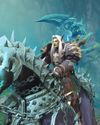
"The War Within itself has kept me coming back most evenings too"
WORLD OF WARCRAFT remains my jailer, and I couldn't be more pleased about it
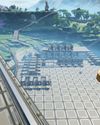
OK BUILDER
SATISFACTORY is the new titan in building and crafting games

HELL YES
DIABLO IV: VESSEL OF HATRED is a transformative expansion
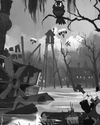
MOUSE: PI FOR HIRE
This mouse wants to be more than just a gimmick

WINDBLOWN
Dead Cells dev's new roguelike has me afraid for my free time
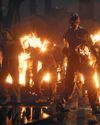
NO MORE ROOM IN HELL 2
As the zombie horde surrounded me just moments after taking down my two remaining teammates, the writing was really on the wall. Armed with just a chef's knife, it was clear I stood no chance, but I was going down swinging, hoping for a miracle... it didn't come.

OWNED BY STEAM
VALVE cordially reminds you that your games aren't yours

CURSE OF THE AZURE BONDS
These classic games haven't aged badly, but I sure have.
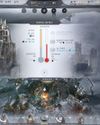
DEEP FREEZE
Endure a blizzard of tough choices and rough consequences in FROSTPUNK 2
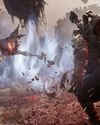
NEW HORIZONS
Building up REMNANT 2 outside the live service game grinder